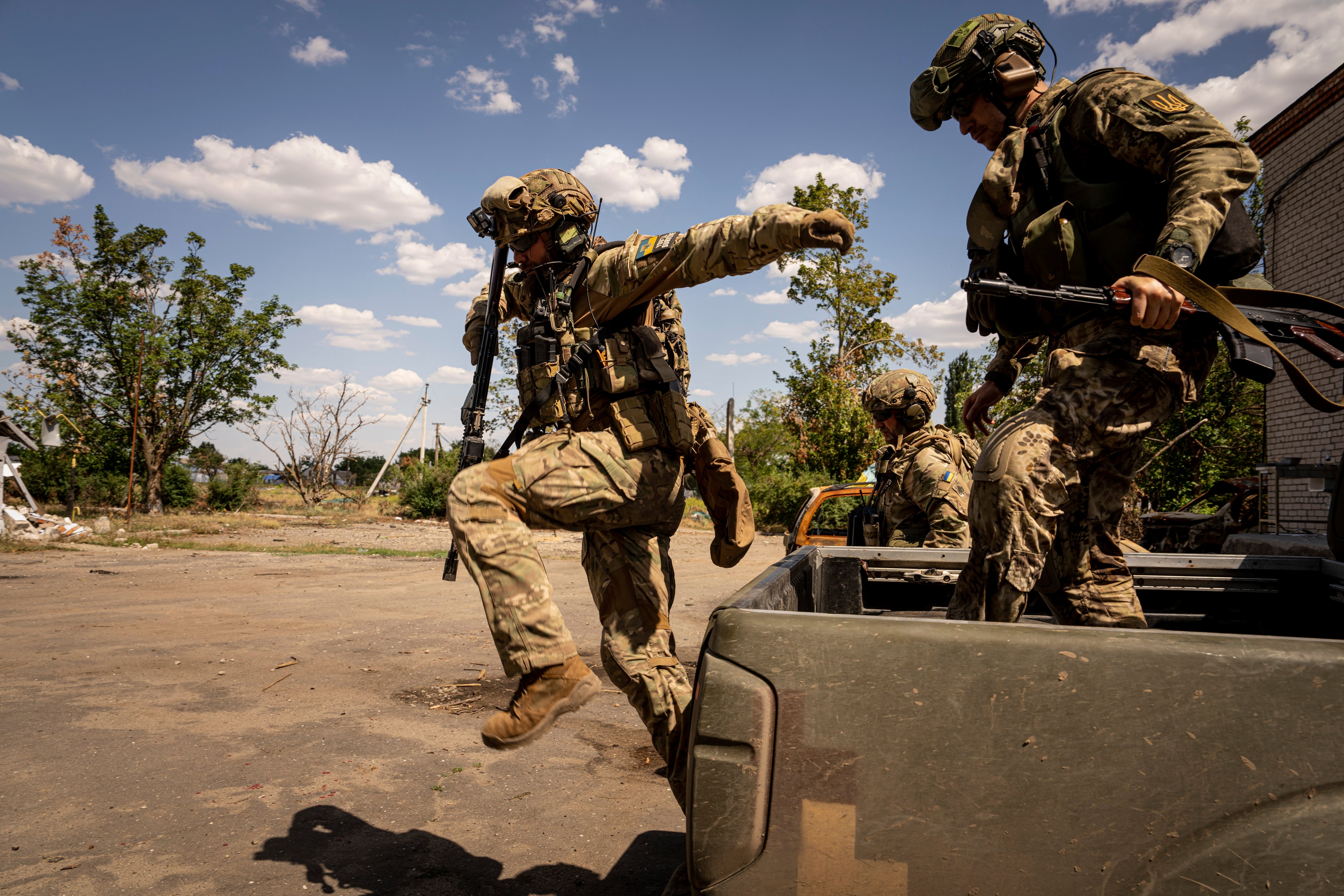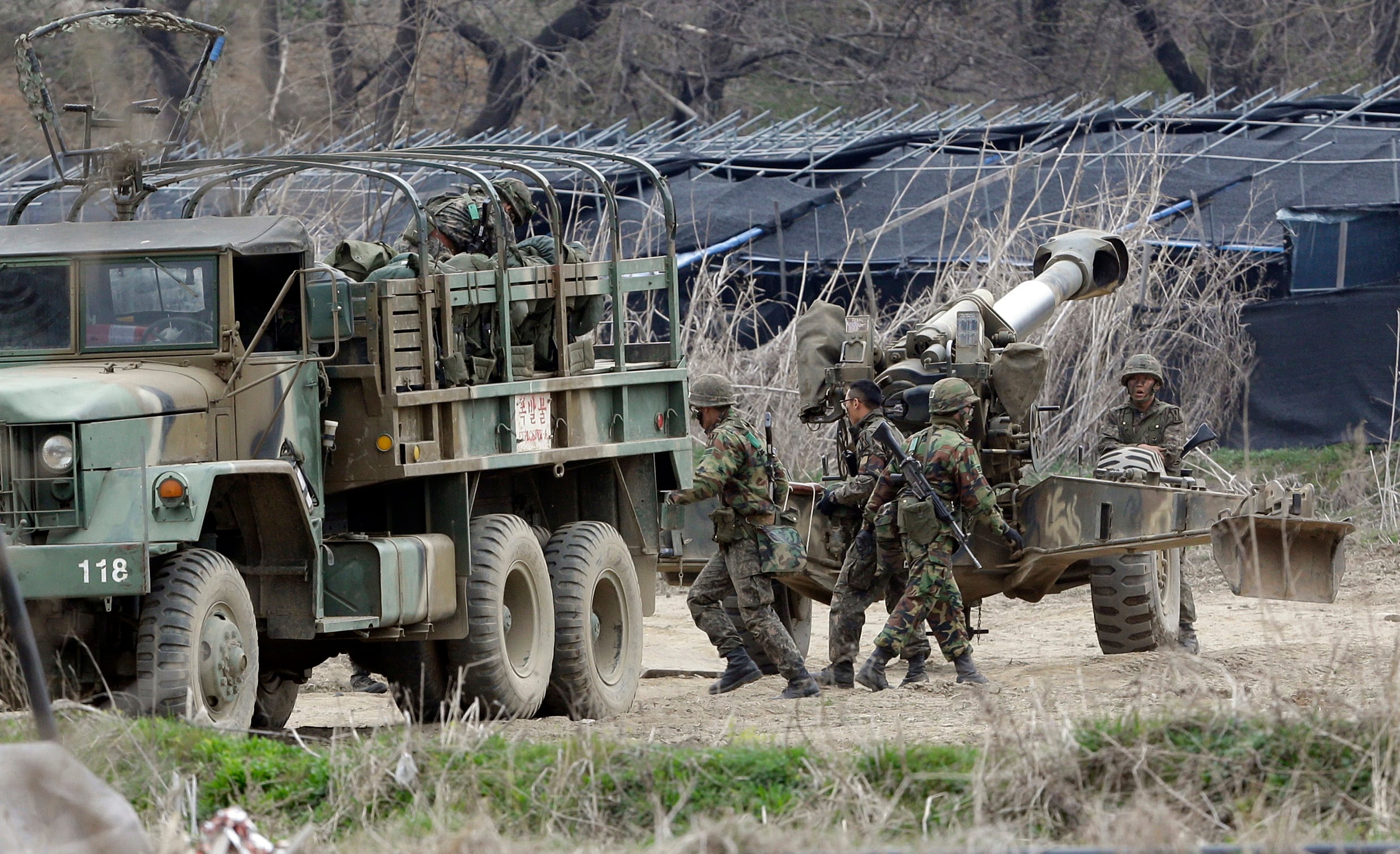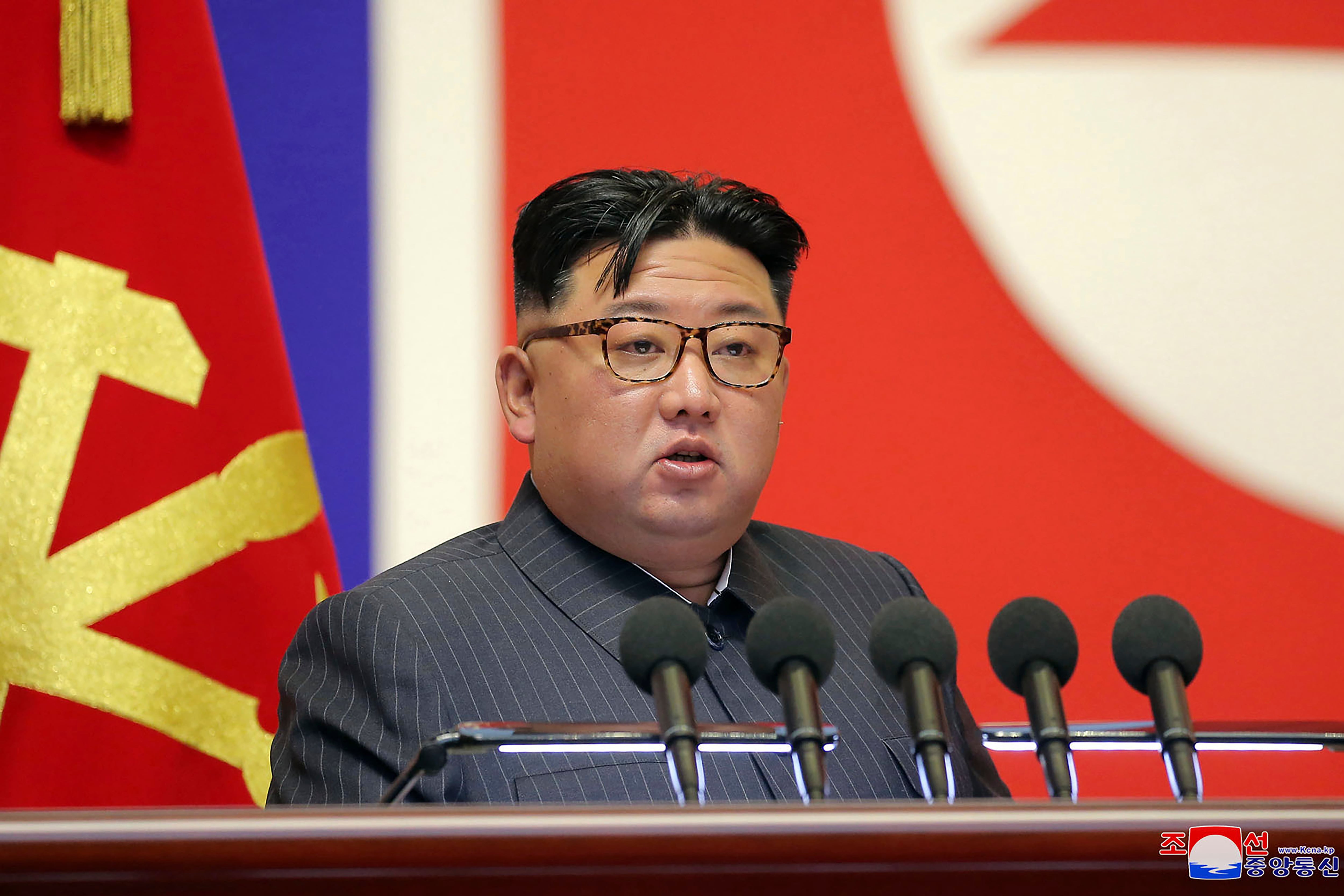The U.S. will buy 100,000 rounds of howitzer artillery from South Korean manufacturers to provide to Ukraine, a U.S. official said Thursday, in a deal the two governments have been working on for some time.
The agreement comes as Ukrainian leaders press for more weapons and aid to take advantage of a counteroffensive that is pushing Russian forces out of some areas they had taken over earlier in the war. And it relieves concerns within the U.S. military — particularly the Army and the Marine Corps — who are worried that persistent transfers of the Pentagon’s howitzer ammunition to Ukraine are eating into their stockpiles.
RELATED

Other defense officials confirmed the broad outlines of the contract and said it would help with stockpile pressures, specifically involving the howitzer ammunition, which Ukrainian forces have been using at a high rate. Last week a defense official briefing reporters said Ukraine was burning through as many as 7,000 rounds of ammunition a day, while Russia was firing as much as 20,000 rounds daily.
The officials spoke on condition of anonymity because details of the deal had not been made public.
South Korea’s Defense Ministry in a statement acknowledged ongoing talks over exporting an unspecified number of 155-millimeter artillery shells to shore up diminishing U.S. inventories. However, the ministry said the negotiations were proceeding under the presumption that the U.S. would be the “end user” of those rounds and that Seoul maintains its principle of providing only non-lethal support to Ukraine.

The South Korea agreement provides a sharp counterpoint to U.S. accusations earlier this month that North Korea was covertly shipping artillery to Russia. It’s not immediately clear whether the deal opens the possibility of South and North Korean artillery being fired against each other in Ukraine.
North Korea has aligned with Russia over the war in Ukraine while also blaming the United States for the crisis, insisting that the West’s “hegemonic policy” has forced Russia to take military action to protect its security interests. However, Pyongyang has repeatedly denied U.S. claims that it has been sending large supplies of artillery shells and other ammunition to Russia, accusing the Biden administration of a smear campaign.
Experts say North Korea has the potential to become a major source of munitions for Russia, considering the interoperability of their weapons systems based on Soviet roots. They say that the North, which has used the distraction created by the war to ramp up missile tests to a record pace, could seek to receive in return Russian fuel and technology transfers to further advance its military capabilities as it pursues more powerful missiles and nuclear warheads.
Until now, South Korea had previously limited its support for Ukraine to non-lethal equipment and supplies. In April, Ukrainian President Volodymyr Zelenskyy pressed South Korea to provide lethal arms after Russia’s attack on Mariupol. Seoul’s Defense Ministry confirmed at the time that it had rejected the Ukrainian request for anti-aircraft weapons, citing the South Korean government’s principle of sending only non-lethal aid.
International security experts have said both North Korea and South Korea maintain vast stockpiles of ammunition due to the decades-long tensions along their heavily fortified and militarized shared border.
RELATED

In a statement, Army Lt. Col. Marty Meiners, a Pentagon spokesman, said the U.S. government has been in discussions to buy ammunition from South Korea’s non-government defense industrial base. The ammunition would not come from South Korean military stocks. He declined to provide details.
Meiners said any potential sales always take into account the South Korean military’s readiness and requirements and “will not detract from our defensive posture or readiness to respond against regional threats.” He added that South Korea’s defense industry regularly sells military equipment and weapons systems to allies and partners, including the U.S.
South Korea has also inked several recent arms deals with European countries eager to bolster their defenses in the wake of Russia’s invasion of Ukraine, including almost $9 billion in multiple contracts with Poland to provide F-16 fighter jets, training aircraft, tanks and howitzers.
The ammunition deal was first reported by the Wall Street Journal.
Meiners said he could not provide information on how quickly the ammunition could get to Ukraine. He said the Pentagon has regular conversations with South Korea and other allies around the world about how best to support Ukraine in the war.
The revelation of the agreement came as Russia said it was beginning to withdraw its forces from the key city of Kherson. Ukrainian officials acknowledged Moscow’s troops had no choice but to flee Kherson, yet they remained cautious, fearing an ambush.
Kherson was the only provincial capital Moscow captured after invading Ukraine in February. A Russian withdrawal would mark a serious setback for Moscow, while giving Ukraine a critical launching pad for supplies and troops to aid its effort to win back other lost territory in the south, including Crimea, which Moscow seized in 2014.
AP writer Kim Tong-hyung contributed to the story from Seoul, South Korea.




